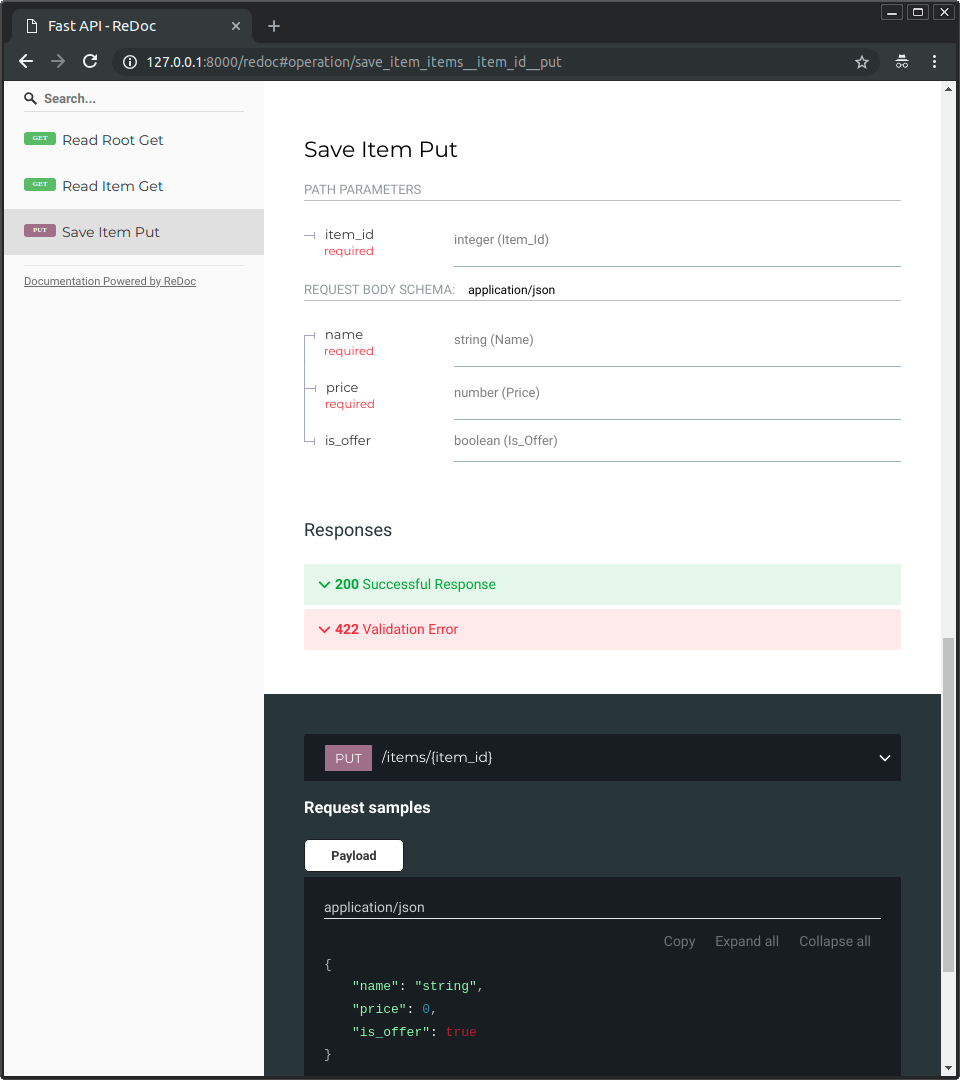- Sort Score
- Result 10 results
- Languages All
Results 1 - 10 of 519 for just (0.24 sec)
-
docs/en/docs/tutorial/dependencies/index.md
You only give `Depends` a single parameter. This parameter must be something like a function. You **don't call it** directly (don't add the parenthesis at the end), you just pass it as a parameter to `Depends()`. And that function takes parameters in the same way that *path operation functions* do. /// tip
Registered: Sun Sep 07 07:19:17 UTC 2025 - Last Modified: Sun Aug 31 09:15:41 UTC 2025 - 9.6K bytes - Viewed (0) -
src/main/java/jcifs/smb1/smb1/AndXServerMessageBlock.java
bufferIndex += byteCount; } /* * if there is an andx and it itself is an andx then just recur by * calling this method for it. otherwise just read it's parameter words * and bytes as usual. Note how we can't just call andx.readWireFormat * because there's no header. */ if (errorCode != 0 || andxCommand == (byte) 0xFF) {Registered: Sun Sep 07 00:10:21 UTC 2025 - Last Modified: Thu Aug 14 07:14:38 UTC 2025 - 10.9K bytes - Viewed (0) -
docs/en/docs/tutorial/security/simple-oauth2.md
* `https://www.googleapis.com/auth/drive` is used by Google. /// info In OAuth2 a "scope" is just a string that declares a specific permission required. It doesn't matter if it has other characters like `:` or if it is a URL. Those details are implementation specific. For OAuth2 they are just strings. /// ## Code to get the `username` and `password` { #code-to-get-the-username-and-password }
Registered: Sun Sep 07 07:19:17 UTC 2025 - Last Modified: Sun Aug 31 09:15:41 UTC 2025 - 9.4K bytes - Viewed (0) -
docs/en/docs/tutorial/extra-models.md
For that, use the standard Python `typing.List` (or just `list` in Python 3.9 and above): {* ../../docs_src/extra_models/tutorial004_py39.py hl[18] *} ## Response with arbitrary `dict` { #response-with-arbitrary-dict } You can also declare a response using a plain arbitrary `dict`, declaring just the type of the keys and values, without using a Pydantic model.Registered: Sun Sep 07 07:19:17 UTC 2025 - Last Modified: Sun Aug 31 09:15:41 UTC 2025 - 7.2K bytes - Viewed (0) -
docs/en/docs/features.md
 ### Just Modern Python { #just-modern-python } It's all based on standard **Python type** declarations (thanks to Pydantic). No new syntax to learn. Just standard modern Python.Registered: Sun Sep 07 07:19:17 UTC 2025 - Last Modified: Sun Aug 31 09:15:41 UTC 2025 - 9.5K bytes - Viewed (0) -
docs/en/docs/tutorial/security/get-current-user.md
Do you want to just have a `str`? Or just a `dict`? Or a database class model instance directly? It all works the same way. You actually don't have users that log in to your application but robots, bots, or other systems, that have just an access token? Again, it all works the same.
Registered: Sun Sep 07 07:19:17 UTC 2025 - Last Modified: Sun Aug 31 09:15:41 UTC 2025 - 4K bytes - Viewed (0) -
api/maven-api-spi/src/main/java/org/apache/maven/api/spi/ModelTransformer.java
@Experimental @Consumer @Named public interface ModelTransformer extends SpiService { /** * Apply a transformation on the file model. * * This method will be called on each file model being loaded, * just before validation. * * @param model the input model * @return the transformed model, or the input model if no transformation is needed * @throws ModelTransformerException */ @NonnullRegistered: Sun Sep 07 03:35:12 UTC 2025 - Last Modified: Thu Apr 03 13:33:59 UTC 2025 - 3.6K bytes - Viewed (0) -
src/main/java/jcifs/internal/smb1/AndXServerMessageBlock.java
} bufferIndex += this.byteCount; } /* * if there is an andx and it itself is an andx then just recur by * calling this method for it. otherwise just read it's parameter words * and bytes as usual. Note how we can't just call andx.readWireFormat * because there's no header. */ if (this.errorCode != 0 || this.andxCommand == (byte) 0xFF) {Registered: Sun Sep 07 00:10:21 UTC 2025 - Last Modified: Sun Aug 31 08:00:57 UTC 2025 - 15.8K bytes - Viewed (0) -
docs/en/docs/advanced/openapi-callbacks.md
Registered: Sun Sep 07 07:19:17 UTC 2025 - Last Modified: Sun Aug 31 09:15:41 UTC 2025 - 7.9K bytes - Viewed (0) -
docs/en/docs/advanced/security/oauth2-scopes.md
Each "scope" is just a string (without spaces). They are normally used to declare specific security permissions, for example: * `users:read` or `users:write` are common examples. * `instagram_basic` is used by Facebook / Instagram. * `https://www.googleapis.com/auth/drive` is used by Google. /// info In OAuth2 a "scope" is just a string that declares a specific permission required.
Registered: Sun Sep 07 07:19:17 UTC 2025 - Last Modified: Sun Aug 31 10:49:48 UTC 2025 - 13.5K bytes - Viewed (0)